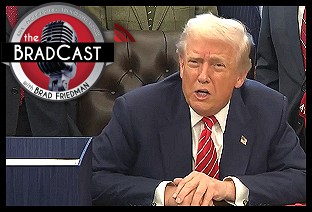[Update: An 'emergency lawsuit' has now been filed by proponents. See details at bottom of this article.]
 A statewide hand-count of millions of hand-marked paper ballots is currently underway in Oregon, as proponents of a GMO-related ballot initiative hope to overcome the computer-tallied margin of less than one-fifth of one percent, as reported by the state following the November 4th election.
A statewide hand-count of millions of hand-marked paper ballots is currently underway in Oregon, as proponents of a GMO-related ballot initiative hope to overcome the computer-tallied margin of less than one-fifth of one percent, as reported by the state following the November 4th election.
But proponents of the measure are expressing concern about the process of the count, including corporate interference and thousands of votes that have been excluded, due to questions about signatures on mail-in ballots.
We recently detailed how the "Yes on Measure 92" campaign trailed by just over 800 votes (.02%) out of more than 1.5 million cast, in what has become the most expensive ballot measure battle in Oregon state history. $21 million dollars were reportedly spent to defeat the measure by corporate opponents of the "Right to Know" initiative. Monsanto, DuPont, Kraft, Pepsico and other national food companies had worked to block Measure 92's mandate requiring food sold in the state containing genetically modified products be labeled as such. Proponents reportedly spent just $9 million in support of the initiative.
As the statewide "recount" is now underway (we use quotes around the word to denote that, until now, the paper ballots have never actually been counted by human beings, only by oft-failed, easily-manipulated, sometimes wildly-inaccurate computer optical-scanners), proponents are citing a number of concerns about the way the state is carrying out the hand count, including what they describe as attempted illegal interference by Measure 92's corporate opponents, and the exclusion of thousands of ballots which, proponents believe, are being inappropriately left out of the final count.
While the number of ballots excluded from the tally could be more than enough to reverse the results of the contest, according to proponents, the complaints also serve to underscore a number of serious drawbacks to Oregon's all Vote-by-Mail election system, as well as mail-in voting in other states...
Out-of-state observers
 In a series of emails to supporters over the weekend, the Yes on 92 campaign sounded the alarm over a number of issues that have come to light since the "recount" of Measure 92 began last week in the Beaver State.
In a series of emails to supporters over the weekend, the Yes on 92 campaign sounded the alarm over a number of issues that have come to light since the "recount" of Measure 92 began last week in the Beaver State.
"The official Measure 92 recount started this week in Oregon and things are not going well," explained one missive on Saturday. "Already, the Monsanto-led opposition has illegally flown in out-of-state-observers to recount locations. In several cases, these observers have been kicked out, as legally only Oregon residents who are registered voters may serve as observers."
The group also cited "multiple reports" that representatives of the corporate opponents of the measure are "disrupting the recount process, illegally handling ballots, and attempting to skirt the Oregon residency requirement by instructing out-of-state workers to get an Oregon ID and register as an Oregon voter."
While they didn't present evidence of the No campaign "illegally handling ballots," over the weekend, Oregon's Statesman Journal detailed the fight over out-of-state observers attempting to oversee the hand-count process, in contravention of state law.
After complaints filed by the Yes coalition, the Sec. of State's office clarified in a statement that, indeed, "observers need to be registered voters in the state of Oregon".
Interpretation of that statute has since varied from county to county, according to the Statesman Journal, with some county clerks allowing out-of-state observers to remain in the counting room, though farther away from "authorized observers" (one from each side) directly overseeing the table where hand counts are ongoing, and other clerks allowing non-registered observers only to watch the process on monitors or through a window from an adjacent area.
We have some questions about whether any observer should be kept from overseeing such public ballot counts. If we had gone to Oregon to oversee the hand count, would it be appropriate to keep out a member of the media or an out-of-state election integrity expert? How about a member of the U.S. Dept. of Justice if they wished to observe in order to try and ensure the count was carried out fairly? Nonetheless, while Oregon law makers may wish to review that questionable statute in the future, it is currently state law and should be fairly and evenhandedly applied.
Ballots excluded due to 'problem signatures'
Of more concern to the "Food Democracy Now" group, however, is what they describe as "a whopping 4,600 some voters who followed all the laws in voting their ballot, but still had it rejected all because a county elections staff found the signature on their ballot did not match the signature on their registration card, which could have been submitted many years ago!"
In their Saturday note to supporters, the group charged that such rejected ballots, in the all Vote-by-Mail state, do "not say that it will be rejected unless the signature matches the signature on your registration card from however many months or years ago."
"Without clear evidence of fraud or foul play, every signed ballot timely submitted must be opened and counted," proponents allege. "By failing to follow this reasonable and prudent legal standard, Oregon Secretary of State Kate Brown is potentially intentionally disenfranchising Oregon voters, some of whom may not sign every signature the same due to a number of factors, including age, illness and disability."
In another note to supporters on Sunday, focusing only on the excluded ballots, Paige Richardson, the Yes on 92 Campaign Director from RightToKnow.org claimed the group had "spoken with hundreds of voters who followed all the rules --- filling out their ballot, signing the envelope and returning it on time --- only to have their ballot rejected because election officials determined their signature didn't match the one on file."
"There are many reasons why a voter's signature might vary from what's on file with the state," Richardson wrote. "There's George in Multnomah County whose signature was altered after he suffered a stroke in early 2014. There's Cam in Washington County, a Vietnamese immigrant who doesn't speak English well and has poor handwriting. And there's Austin in Coos County who, at 19, hasn't adopted a permanent formal signature yet."
Once again citing "more than 4,600 Oregon voters whose ballots were rejected based on a signature mismatch --- even though matching signatures aren't required by Oregon law," she explained, "The law only requires that our signatures are verified, meaning we sign to swear we are the voter whose name is listed."
"Nowhere are we told that our ballot will be rejected if our signature doesn't 'match' what's on file. And with Measure 92 trailing by just 812 votes, that's more than enough ballots to swing the outcome of this election," Richardson said.
As of late last week, The Oregonian reported that, with "recount" results completed in Multnomah County --- where Measure 92 fared better than anywhere else in the state --- changing only slightly, chances were dimming for final results to flip the originally certified outcome.
"The county tallied 25 more yes votes than it counted the first time around, and charted no change in no votes," the paper reported. They predict that and other "slight changes tallied in other counties so far" will be "too small a difference to overcome the 812-vote deficit found in the first statewide count."
So it is little surprise that proponents are now focusing even more on ballots excluded from the tally due to problems with signatures.
As we noted in our previous report on the Oregon "recount", after Election Day, state officials had, for the first time in their history, released the names of 13,000 voters whose ballots were rejected because of issues with signatures. The Yes on 92 campaign had tried to reach out to those voters in the short time before the state deadline, in hopes of instructing those voters to contact election officials to cure any signature problems by assuring them that their signed ballot was authentic.
That effort was helpful in narrowing the measure's margin after Election Day and before final certification of the initial count. But it was not enough to overcome the opponents' razor-thin lead.
The trouble with Vote-by-Mail
This issue, once again, underscores a shortcoming in Vote-by-Mail (VBM) elections, as well as with absentee balloting elsewhere. While we've heard for years from Oregon voters how much they support their state's all-VBM system --- usually citing the convenience and the fact that the state has consistently had among the highest turnout rates in the nation since instituting it --- we've long opposed doing away with precinct-based voting for a number of reasons, among them, concern about the ways in which fraud is avoided.
We've also heard for years from Election Integrity advocates in Oregon who, while generally supporting the state's VBM system, are concerned that too many of the procedures used are based on the whims of the Secretary of State, rather than requirements set out by statute via the Legislature. How and if ballots and signatures are properly verified is one of those concerns.
Republicans have long pretended that epidemic voter impersonation at the polling place is a problem that needs to be solved by polling place Photo ID restrictions. It isn't. Not by a long shot. And such "solutions" to scant fraud by voters at the polls makes matters only worse by stopping far more legal votes from being cast than fraudulent ones.
Where actual voter fraud exists, however, in anything but miniscule numbers, it is via absentee or mail-in ballots.
By and large, the only way to avoid voter impersonation through mail ballot is with some form of signature matching. (Other concerns about fraud that plague Vote-by-Mail include vote buying and selling, voter intimidation, and ballot tampering after they've been mailed and before they are tallied. See the story of the Bend, OR man convicted of fraud for offering to buy blank ballots, or the Republican election official charged with fraud for filling in unvoted races on VBM ballots in Clackamas County, by way of two examples.)
Yet, signature matching on VBM ballots in Oregon and other states is often done by machines (accurately or otherwise) or by election officials who are far less than expert at hand-writing analysis. Uncounted absentee ballots are a problem around the country and, where it involves problem signatures (either legitimately or otherwise), it can swing the results of very close elections, as appears to be the potential case for Measure 92.
Without signature matching, fraud via mail ballot would be even easier than it is now. With signature matching, however, legitimate voters can be easily disenfranchised. That is a problem that simply does not occur when voters vote at the precinct in person.
In this case, it could be the difference between victory and loss in the most expensive ballot measure contest ever held in the state of Oregon.
UPDATE: Just after publication of the article above, the Yes on 92 campaign issued another email to supporters announcing an "emergency lawsuit" to force state officials to count the 4,600 excluded ballots. From their email...
...
There is no evidence that any of these 4,600 voters have engaged in fraud. The vast majority, if not all, cast valid ballots. Many of these people's signatures have changed due to illnesses or disability. Some never received notification that their signature - and their vote - is being challenged. Others tried to correct their signature mismatch with elections officials but still find their vote is not being counted.
UPDATE 12/12/2014: After court rejects lawsuit, Measure 92 proponents concede defeat. Details now here...
(Snail mail support to "Brad Friedman, 7095 Hollywood Blvd., #594 Los Angeles, CA 90028" always welcome too!)
|


 Court Blocks Hegseth Censure of Sen. Mark Kelly
Court Blocks Hegseth Censure of Sen. Mark Kelly Harpy Tantrums, Legal Losses, Election Fails, Retreating ICE and Other Hopeful Signs: 'BradCast' 2/12/26
Harpy Tantrums, Legal Losses, Election Fails, Retreating ICE and Other Hopeful Signs: 'BradCast' 2/12/26 'Green News Report' 2/12/26
'Green News Report' 2/12/26
 'Let Kids with Asthma Suffer': Trump to Reverse EPA's Landmark 'Endangerment Finding': 'BradCast' 2/11/26
'Let Kids with Asthma Suffer': Trump to Reverse EPA's Landmark 'Endangerment Finding': 'BradCast' 2/11/26 Trump's Presidency Now About Little More Than Racism, Corruption, Culture War Nonsense: 'BradCast' 2/10/26
Trump's Presidency Now About Little More Than Racism, Corruption, Culture War Nonsense: 'BradCast' 2/10/26 'Green News Report' 2/10/26
'Green News Report' 2/10/26 About Trump's FBI Raid of the Fulton County, GA Elections Warehouse: 'BradCast' 2/9/26
About Trump's FBI Raid of the Fulton County, GA Elections Warehouse: 'BradCast' 2/9/26 Sunday 'Dead in Darkness' Toons
Sunday 'Dead in Darkness' Toons 'New START' Treaty Allowed to End Amid New World Disorder: 'BradCast' 2/5/26
'New START' Treaty Allowed to End Amid New World Disorder: 'BradCast' 2/5/26 'Green News Report' 2/5/26
'Green News Report' 2/5/26 Trump Turns 'War on Terror' Tools Against Domestic Political Foes: 'BradCast' 2/4/26
Trump Turns 'War on Terror' Tools Against Domestic Political Foes: 'BradCast' 2/4/26 Losing Legally and Politically, Trump Threatens to 'Nationalize' Elections: 'BradCast' 2/3/26
Losing Legally and Politically, Trump Threatens to 'Nationalize' Elections: 'BradCast' 2/3/26 'Green News Report' 2/3/26
'Green News Report' 2/3/26 Bad and Good Bunnies, and an Electoral Shock in Deep 'Red' TX: 'BradCast' 2/2/26
Bad and Good Bunnies, and an Electoral Shock in Deep 'Red' TX: 'BradCast' 2/2/26 Sunday 'Mirror, Mirror' Toons
Sunday 'Mirror, Mirror' Toons 'Green News Report' 1/29/26
'Green News Report' 1/29/26 It's About Elections and the Windmills of His Mind: 'BradCast' 1/29/26
It's About Elections and the Windmills of His Mind: 'BradCast' 1/29/26 Govt Shutdown Over ICE Funding Near Certain This Weekend: 'BradCast' 1/28/26
Govt Shutdown Over ICE Funding Near Certain This Weekend: 'BradCast' 1/28/26 Trump Blinks, Bovino Out, MN Op Falters, Persists as Midterms Loom: 'BradCast' 1/27
Trump Blinks, Bovino Out, MN Op Falters, Persists as Midterms Loom: 'BradCast' 1/27  The ICE Murder of ICU Nurse Alex Pretti and the Heroes of Mpls: 'BradCast' 1/26/26
The ICE Murder of ICU Nurse Alex Pretti and the Heroes of Mpls: 'BradCast' 1/26/26  The BRAD BLOG: 22 Years and Still Counting
The BRAD BLOG: 22 Years and Still Counting Mr. Smith Testifies (Publicly) in Washington: 'BradCast' 1/22/26
Mr. Smith Testifies (Publicly) in Washington: 'BradCast' 1/22/26 World Turning Against Self-Destructing U.S. Under Trump: 'BradCast' 1/21/26
World Turning Against Self-Destructing U.S. Under Trump: 'BradCast' 1/21/26 Trump Waste, Fraud, Abuse on Voting, at DOJ, by DOGE: 'BradCast' 1/20/26
Trump Waste, Fraud, Abuse on Voting, at DOJ, by DOGE: 'BradCast' 1/20/26
 VA GOP VOTER REG FRAUDSTER OFF HOOK
VA GOP VOTER REG FRAUDSTER OFF HOOK Criminal GOP Voter Registration Fraud Probe Expanding in VA
Criminal GOP Voter Registration Fraud Probe Expanding in VA DOJ PROBE SOUGHT AFTER VA ARREST
DOJ PROBE SOUGHT AFTER VA ARREST Arrest in VA: GOP Voter Reg Scandal Widens
Arrest in VA: GOP Voter Reg Scandal Widens ALL TOGETHER: ROVE, SPROUL, KOCHS, RNC
ALL TOGETHER: ROVE, SPROUL, KOCHS, RNC LATimes: RNC's 'Fired' Sproul Working for Repubs in 'as Many as 30 States'
LATimes: RNC's 'Fired' Sproul Working for Repubs in 'as Many as 30 States' 'Fired' Sproul Group 'Cloned', Still Working for Republicans in At Least 10 States
'Fired' Sproul Group 'Cloned', Still Working for Republicans in At Least 10 States FINALLY: FOX ON GOP REG FRAUD SCANDAL
FINALLY: FOX ON GOP REG FRAUD SCANDAL COLORADO FOLLOWS FLORIDA WITH GOP CRIMINAL INVESTIGATION
COLORADO FOLLOWS FLORIDA WITH GOP CRIMINAL INVESTIGATION CRIMINAL PROBE LAUNCHED INTO GOP VOTER REGISTRATION FRAUD SCANDAL IN FL
CRIMINAL PROBE LAUNCHED INTO GOP VOTER REGISTRATION FRAUD SCANDAL IN FL Brad Breaks PA Photo ID & GOP Registration Fraud Scandal News on Hartmann TV
Brad Breaks PA Photo ID & GOP Registration Fraud Scandal News on Hartmann TV  CAUGHT ON TAPE: COORDINATED NATIONWIDE GOP VOTER REG SCAM
CAUGHT ON TAPE: COORDINATED NATIONWIDE GOP VOTER REG SCAM CRIMINAL ELECTION FRAUD COMPLAINT FILED AGAINST GOP 'FRAUD' FIRM
CRIMINAL ELECTION FRAUD COMPLAINT FILED AGAINST GOP 'FRAUD' FIRM RICK SCOTT GETS ROLLED IN GOP REGISTRATION FRAUD SCANDAL
RICK SCOTT GETS ROLLED IN GOP REGISTRATION FRAUD SCANDAL VIDEO: Brad Breaks GOP Reg Fraud Scandal on Hartmann TV
VIDEO: Brad Breaks GOP Reg Fraud Scandal on Hartmann TV RNC FIRES NATIONAL VOTER REGISTRATION FIRM FOR FRAUD
RNC FIRES NATIONAL VOTER REGISTRATION FIRM FOR FRAUD EXCLUSIVE: Intvw w/ FL Official Who First Discovered GOP Reg Fraud
EXCLUSIVE: Intvw w/ FL Official Who First Discovered GOP Reg Fraud GOP REGISTRATION FRAUD FOUND IN FL
GOP REGISTRATION FRAUD FOUND IN FL

































